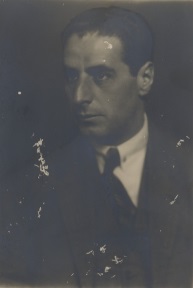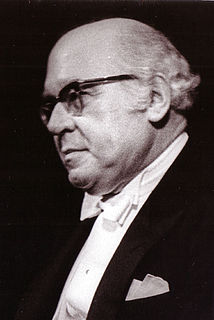Related Research Articles

Victor August Herbert was an American composer, cellist and conductor of English and Irish ancestry and German training. Although Herbert enjoyed important careers as a cello soloist and conductor, he is best known for composing many successful operettas that premiered on Broadway from the 1890s to World War I. He was also prominent among the Tin Pan Alley composers and was later a founder of the American Society of Composers, Authors, and Publishers (ASCAP). A prolific composer, Herbert produced two operas, a cantata, 43 operettas, incidental music to 10 plays, 31 compositions for orchestra, nine band compositions, nine cello compositions, five violin compositions with piano or orchestra, 22 piano compositions and numerous songs, choral compositions and orchestrations of works by other composers, among other music.

Ernst Toch was an Austrian composer of classical music and film scores. He sought throughout his life to introduce new approaches to music.

Jaromír Weinberger was a Bohemian born Jewish subject of the Austrian Empire, who became a naturalized American composer.

Ferenc Farkas was a Hungarian composer.

Volkmar Andreae was a Swiss conductor and composer.

Georgy Vasilyevich Sviridov was a Soviet and Russian neoromantic composer. He is most widely known for his choral music, strongly influenced by the traditional chant of the Russian Orthodox Church, as well as his orchestral works which often celebrate elements of Russian culture. Sviridov employed, in his choral music especially, rich and dense harmonic textures, embracing a romantic-era tonality; his works would come to incorporate not only sacred elements of Russian church music, including vocal work for the basso profundo, but also the influence of Eastern European folk music, 19th-century European romantic composers, and neoromantic contemporaries outside of Russia. He wrote musical settings of Russian Romantic poetry by poets such as Lermontov, Tyutchev and Blok. Sviridov enjoyed critical acclaim for much of his career in the USSR.

Martin Edward Fallas Shaw was an English composer, conductor, and theatre producer. His over 300 published works include songs, hymns, carols, oratorios, several instrumental works, a congregational mass setting, and four operas including a ballad opera.
Edward Joseph Collins was an American pianist, conductor and composer of classical music in a neoromantic style.

Ruben Mattias Liljefors was a Swedish composer and conductor, brother of the artist Bruno Liljefors.

Xavier Henry Napoleón Leroux was a French composer and a teacher at the Paris Conservatory. He was married to the famous soprano Meyrianne Héglon (1867–1942).

Liza Lehmann was an English soprano and composer, known for her vocal compositions.
Ludvík Podéšť, pseudonym Ludvík Binovský, was a Czech composer, conductor, music journalist and editor.

Fidelio Friedrich "Fritz" Finke was a Bohemian-German composer.
References
- ↑ "Cumberland, Gerald (1879-1926)". National Library of Australia. Retrieved 17 December 2016.
- ↑ "Kenyon, C. Fred, (Charles Frederick) (1879-1926)". National Library of Australia. Retrieved 17 December 2016.
- ↑ Fuller, Sophie; Whitesell, Lloyd (2008). Queer Episodes in Music and Modern Identity. University of Illinois Press. p. 223. ISBN 978-0-252-07578-0 . Retrieved 17 December 2016.
- ↑ Gibbs, A M, ed. (1990). Shaw. Palgrave Macmillan. pp. 281, 282. ISBN 978-1-349-05402-2.
- ↑ A Lover at Forty (1900). Accessed 17 December 2016 (Open Library)